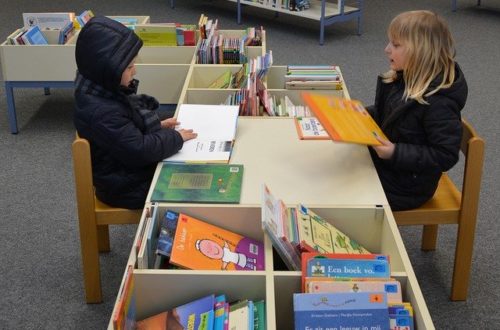Hieronymus Karl Friedrich Freiherr von Münchhausen is a fictional German nobleman created by writer Rudolf Erich Raspe in 1785. The Baron’s fantastical and ludicrously impossible exploits have delighted children and movie goers for decades. Munchausen is known for his wild, outlandish stories, told in the first person, and his bravado and daring––taking part in such activities as riding a cannonball and traveling to the moon. Far less whimsical is the Munchausen by Proxy Syndrome. The syndrome, named for Munchausen, also called Factitious Disorder, is a very dark mental health condition wherein caregivers intentionally keep children sick, or exaggerate an existing condition. The Gypsy Rose Blanchard case is only the most recent to captivate and horrify the world. Another example being Lisa Hayden-Johnson, who claimed that her son suffered from illnesses including diabetes, food allergies, cerebral palsy, cystic fibrosis and an intolerance to sunlight.
I’ve been thinking about Baron Munchausen lately, and the syndrome, as he relates to our ongoing literacy crisis in America. The question I keep asking myself, now more so than ever before, is why the research and the science behind how we read, the large body of proof across multiple disciplines called the science of reading, isn’t making it into more classrooms. Bringing in the science would, of course involve a translational research component, as Mark Seidenberg and others have pointed out. Raw science doesn’t necessarily translate to practice in a classroom.
I did some research on Munchausen by Proxy, that’s the term that came to mind, and I did so in the context of education and special education. I was able to find that a similar condition can be found in our education system. This syndrome in the education setting is more of an institutional mindset than anything. What does cause this reluctance to provide meaningful services that would facilitate change? Money? Maybe. Malala’s father taught her and her friends to read in three languages in a war zone with no money, so it’s not necessarily a limiting factor. It could be pride. Our system is very much about achievement and success. I postulate that there is also something on a more subconscious psychological level at work that is factoring into the equation. Logically, at least to me, it makes very little sense why, when given the materials, the research, and the tools to help a student––a custom-made intervention if you will––why that wouldn’t be worth a try.
The notion of reading and learning being natural, a romantic and far-fetched idea that is not rooted in fact, is woven into the fabric of the educational world we have built. We have designed an institutional foundation for learning that is based on what adults want to be true of children, rather than the reality that children face as newcomers to the world. This newness is often interpreted as tabula rasa, or an irrefutable innocence that cannot be changed or altered, as if a five-year-old will not ever become a twenty-five year old. Marcus Aurelius wrote “the universe is change; our life is what our thoughts make it.” Unfortunately, I think that’s what’s happening. The universe and our reality is changing constantly, and in order to maintain a sense of control we have come to see the world not as it is, but as we wish it to be.
The idea that a teacher’s job is to be a guide, to build rapport takes priority over the essential job of teaching reading, and certain foundational skills that are seen as rote. I’ve scratched my head over this issue for years now, because it doesn’t seem like it should be this hard to get kids reading. Children in other countries are not presented with this barrier of reading skills being seen as something traumatic or sinful against the nature of the child.
When I find a new or better tool with the proof behind it that it works, I adopt it, and I try to ensure that no student is a guinea pig for my beliefs or my own faith in my tools. That’s not fair for the student. If something doesn’t work, I don’t continue to use it. Furthermore, an intervention shouldn’t take years and years. The goal is to remediate the student’s challenges, and help them get on grade level in their skills. It’s easier said than done sometimes, but that’s the overarching goal. I always try to keep an open mind, and not get locked into any one thing. The question I always ask is, “is this the right tool to help this individual student.” This year especially, following the data instead of a particular program or method has become something of a mantra. Follow the data. What does the data tell you?
Coming back to Munchausen, over the years, I keep seeing examples of instruction at a systematic level being based more on belief in a program or pedagogy over the needs of the child. It’s not done with any kind of insidious design in mind, it’s just become common for particular programs to achieve a certain degree of loyalty from the powers that be. It’s more like buying the same kind of car repeatedly without checking the ratings just because you always get that brand. Learning, especially learning to read, doesn’t really work that way. We know from the science that the reading process is unnatural, and it is relatively recent in our history––around 5,000 years old. We didn’t need it for survival until very recently. Now it is of critical importance.
If the data shows, for example, a fluency deficit, and that number hasn’t budged for weeks, and then eventually years, why wouldn’t you change the approach? It’s not a money issue. It’s not even really an ideological issue. The answer of at least trying something else is right there in the data. It’s practically screaming off the page. If we were talking about the medical field, and a medicine wasn’t working or a certain kind of treatment, the doctor usually recommends something else after looking at the patient’s history. They check for allergies and bad reactions and genetic issues, anything that might prevent a successful cure. We don’t do this in education very often, at least not as a broad, generalized practice.
Schools provide training in certain programs, oftentimes non-evidence-based programs with no connection to what we know kids need in order to read. If a child continues to struggle with reading, including older students who often need fluency help, they will face a more difficult journey to adulthood. The resulting collateral damage of a fluency deficit in high school is usually more to do with the volume and the quality of the reading that needs to be done. Why wouldn’t we do what needs to be done to help these students? Find the best tools, and the best approaches for these students? Instead of accepting this limitation and still attempting to move onto more challenging, higher-level skills. It’s a problem I see constantly, and it usually means the original issue has been kicked down the road so many times that we aren’t talking about a simple fluency deficit, we’re talking about a wide range of problems tied to that one challenge. Our national report card, and statewide data indicates how many kids are struggling both in and out of special education. These are numbers that have either stayed stagnant, or have worsened over the last few years. The compounding emotional and anxiety related issues that arise from these challenges only serve to make it harder for these students to navigate their school careers. In the case of special education, it makes it harder to ever leave that system.
The theory goes like this––what if Munchausen by proxy occurs in the industry of special education? What if this is a systematic problem? There’s certainly a lot of money at stake in the system. Schools buy expensive programming with “evidence-based” on the box. Hundreds of thousands of dollars get poured into curriculum and training. After paying for all of this programming, and training teachers. It’s not easy to shift the Titanic and adjust course after such a large investment, and yet we still have thousands of kids across the country who aren’t learning, but who are fully capable of learning. I think what we have is a system that doesn’t really, at the end of the day, want students to get better and improve.
Students in general education, by and large, will be able to get by with minimal instruction, and run of the mill resources. However, in special education, because it is so hard to find appropriate services, the students do come to rely on this system for support. The Students also come to rely very heavily on their caregivers in school, especially when they struggle to attain independence. This level of need, this devotion, is of a similar nature to being sick, and adults who suffer from Munchausen syndrome often are seeking out that level of attention and devotion. The system creates this dynamic. Caregivers want to feel needed. The role of the educator is often a thankless one, and it requires so much of us. The love that comes from students is really the fuel that keeps so many people going even as conditions worsen. It makes so little sense to me why students wouldn’t be provided with all the tools they need, and when I am confronted with that reality I have to come to the conclusion that there’s some reason for this behavior on a systematic level. It goes so far beyond pride and belief to see a child struggling with a skill, and decide not to intervene. If one were to intervene properly, presumably that child would no longer need the care and the service, and they would be able to move on.
Another question comes up for me. Why on earth is it so hard for these kids to get basic services? We’re not talking about a budget issue, or a matter of willpower. America has more resources than many smaller countries put together. Logically that doesn’t seem like the problem. Poorer schools do lack money and resources, but no one is paying anyone to not teach reading in a way that makes sense. Parents who use Siegfried Engelmann’s Teach Your Child to Read in 100 Easy Lessons spend $15 to teach their kids to read, and it works. Anyone could really do it given the time, and the determination. You don’t need a master’s degree to outfit a child with foundational skills. We were doing that before there even was a higher education system. The Sumerians did it back in the day. Our schools may be underfunded and understaffed, and there are a litany of other challenges and problems, but teaching reading really isn’t that hard a thing to do. We as humans invented it. We have been learning how to read for almost 5,000 years. It’s doable. We have the research, we have the programming, and we have the data. All the pieces are there. And yet we have thousands of kids walking away from school who can’t read or write proficiently, many of whom don’t find out until the end of their middle or high school careers when it’s very late to be addressing such basic, crucial skills. It’s not any one person’s fault, but I strongly suspect there’s more to the problem than a matter of economics or training. The training is out there too. The knowledge is pretty easily accessible.
I suppose I’m more asking a question than making a statement. I can see from my search for scholarly articles and studies that other people have asked this question in a couple of different ways too. I just wonder, is this real? Do we have a Munchausen syndrome problem in our special education system? Is it a matter of primal instincts? Is this an inherent bias that we can’t recognize in ourselves like the Kitty Genovese, or Bystander, Effect? I ask the question only because I want to know why I’m still seeing kids come to me who can’t read. It doesn’t make sense to me why these basic foundational skills are not being addressed in school, no matter how old the kid is. I am told things like “oh we’re teaching the whole child,” or “working with the individual.” My only response is “this individual whole child can’t read. This whole child is functionally illiterate. Why is that?” Teaching a child to read is the most basic, fundamental job of a school. I hope I’m wrong, and maybe I am. That’s how theories work. Theories can be proven, or they can be disproven. I hope to find an explanation as to why we have 32 million illiterate people, including thousands of children in this country. That is just as ridiculous as one of Baron Munchausen’s stories, only it’s not a fantasy.





